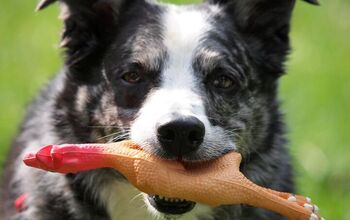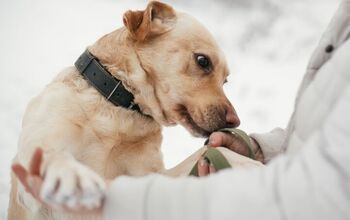Can Dogs Have ADHD?

Attention Deficit Hyperactivity Disorder, also known as ADHD, is commonly discussed in relation to humans, children in particular. And just as its name suggests, this mental disorder is characterized by symptoms of inattention, hyperactivity, and impulsivity. However, in recent years pet owners and veterinarians have begun to wonder if similar behavioral issues can also affect dogs. Can dogs have ADHD? Here’s what the facts say.
Can Dogs Have ADHD?
In humans, ADHD is classified as a neurodevelopmental disorder and is usually diagnosed in childhood. Symptoms typically include difficulty focusing, excessive energy, and impulsive actions. It is often treated with a combination of behavioral therapy and medications. And, understanding these traits in humans can help us look for analogous behaviors in dogs as well.
Just like humans, dogs can also exhibit a range of behaviors that might seem similar to the symptoms of ADHD. Common behaviors that concern pet owners include excessive barking, restlessness, an inability to settle down, destructive behavior, and an apparent lack of focus or attention. However, it is essential to recognize that dogs naturally have higher energy levels compared to humans, for example, especially certain dog breeds. For instance, Border Collies and Jack Russell Terriers are known for their high energy and require significant physical and mental stimulation. This is why it is crucial to distinguish between normal breed-specific behavior and potential behavioral disorders.
Veterinarians and animal behaviorists have mixed opinions on whether dogs can genuinely have ADHD. Dr. Nicholas Dodman, a veterinary behaviorist who wrote the revolutionary book “ Pets On the Couch”, has suggested that dogs can exhibit behaviors akin to ADHD in humans. He points out that some dogs may show persistent patterns of inattention, hyperactivity, and impulsivity that go beyond typical high-energy behavior.
Recent studies have also hinted at a genetic component similar to that seen in human ADHD. A study conducted by researchers in Finland found that certain genes associated with human ADHD were also present in dogs exhibiting hyperactive and impulsive behaviors. This genetic link suggests that dogs could have a condition that mirrors ADHD, although the manifestation and diagnosis might differ.
Unlike humans, there are no standardized diagnostic criteria for ADHD in dogs. Diagnosis is generally based on a combination of behavioral assessments and the exclusion of other medical conditions. A vet might look for signs such as:
- Inability to focus:
Dogs with ADHD-like behavior may struggle to concentrate and focus on tasks and commands.
- Excessive activity:
Hyperactive dogs might be on the move constantly and will display restlessness and inability to settle down.
- Impulsivity:
Impulsive dogs may act without thinking, and will often engage in behaviors that seem reckless or spontaneous.
Vets will also try to rule out other potential causes for such behaviors, such as thyroid issues, allergies, or neurological conditions.
However, if a dog is diagnosed with ADHD-like behavior, management strategies typically focus on behavioral modification and lifestyle changes rather than medication. Some effective approaches include:
- Increased Exercise: Ensuring the dog gets sufficient physical activity can help manage excessive energy levels. When the weather is bad or if you live in an area where there are no safe parks for off-leash running, special dog treadmills can be a good tool for helping your pooch burn off that extra energy.
- Mental Stimulation:
Interactive toys can keep your hyperactive dog focused on a task and engaged for quite a while if you pick the right difficulty level. Most puzzle toys start with easier levels, which an intelligent pooch will figure out quickly and lose interest, so go for those of intermediate difficulty to start with.
- Consistency:
Establishing a consistent routine can help reduce anxiety and improve focus, as dogs naturally depend on a routine and thrive with it.
If you suspect your dog might have ADHD-like symptoms, consulting with a veterinarian or an animal behaviorist is the best first step. With proper care and management, dogs with these behaviors can lead happy, healthy lives.

A proud mama to seven dogs and ten cats, Angela spends her days writing for her fellow pet parents and pampering her furballs, all of whom are rescues. When she's not gushing over her adorable cats or playing with her dogs, she can be found curled up with a good fantasy book.
More by Angela Vuckovic


























